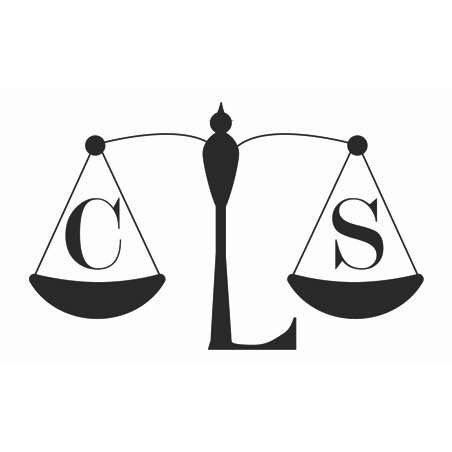Best Water Law Lawyers in Sanaa
Share your needs with us, get contacted by law firms.
Free. Takes 2 min.
List of the best lawyers in Sanaa, Yemen
About Water Law in Sanaa, Yemen
Water Law in Sanaa refers to the legal framework that governs the use, distribution, management, and protection of water resources within the city and the broader national context. Yemen is one of the most water-scarce countries in the world, and Sanaa faces severe challenges in accessing safe and reliable water sources. The laws are designed to regulate groundwater and surface water usage, prevent illegal drilling and over-extraction, resolve water disputes, and ensure the equitable sharing of limited resources. Water Law is shaped by both national legislation and customary practices informed by local communities and Islamic jurisprudence.
Why You May Need a Lawyer
Legal issues involving water in Sanaa can be complex due to the scarcity of resources, overlapping authorities, and a combination of statutory and customary laws. People may need legal assistance in the following situations:
- Disputes over access to water between neighbors or communities
- Legal action involving the illegal digging of wells or unauthorized water extraction
- Conflicts regarding water rights for agricultural, industrial, or residential use
- Claims related to water contamination or pollution
- Problems with municipal water supply or infrastructure
- Negotiating agreements for shared water resources
- Understanding government policies or permits relating to water
- Participating in water management committees or local governance
A lawyer specializing in Water Law can help interpret regulations, represent your interests, and guide you through official procedures.
Local Laws Overview
Water Law in Yemen, and particularly in Sanaa, is influenced by several legal instruments and regulatory agencies. The key sources include:
- Water Law No. 33 (2002) - Establishes the legal regime for the protection, management, development, and rational use of water resources. It outlines permit requirements for drilling wells, use restrictions, and penalties for illegal activities.
- Local Customary Laws - In rural and peri-urban areas, customary norms play a significant role in the allocation and sharing of water resources, often managed by community elders or through mediation.
- Regulatory Bodies - The National Water Resources Authority (NWRA) and the Ministry of Water and Environment oversee the implementation of water regulations, licensing, and dispute resolution.
- Environmental Protection Laws - These address pollution, overuse, and public health risks associated with water and mandate penalties for violations.
Adherence to these laws is critical, as violations can result in fines, closure of wells, or even criminal charges.
Frequently Asked Questions
What are the main sources of water in Sanaa?
Sanaa relies primarily on groundwater from wells, with some supplementary supply from rainwater harvesting and limited surface water sources. Due to overuse, the groundwater table is dropping significantly.
Is it legal to build a private well on my property?
No, constructing a well requires an official permit issued by the National Water Resources Authority. Unauthorized drilling is illegal and subject to penalties.
How are water rights distributed in Sanaa?
Water rights are regulated by national law, customary agreements, and practical availability. In urban areas, rights are usually allocated by the municipal authorities, while rural areas may rely more on traditional systems.
What should I do if my neighbor is stealing my water?
You should document the activity and report it to your local water authority or the police. A lawyer can help you navigate the complaint process and pursue compensation or legal remedies.
Who is responsible for resolving water disputes?
In Sanaa, water disputes may be resolved by local courts, customary mediation bodies, or the National Water Resources Authority, depending on the nature and location of the conflict.
How do I apply for a water use permit?
Applications are submitted to the National Water Resources Authority or relevant municipal offices. The process generally requires proof of land ownership, intended use, and plans for sustainable extraction.
Are there penalties for water pollution?
Yes, polluting public or private water sources is illegal and subject to fines, cleanup orders, or even criminal prosecution depending on the severity of the offense.
Can customary law override national Water Law?
Customary law is often respected, especially in rural settings, but national legislation takes precedence in formal legal proceedings and urban environments. A lawyer can help reconcile any conflicts between the two systems.
What are the main agencies regulating water in Sanaa?
The principal regulatory agencies are the National Water Resources Authority and the Ministry of Water and Environment. Local water companies and municipal authorities also play roles in implementation and oversight.
What legal protections exist for vulnerable groups regarding water access?
National law and various humanitarian guidelines promote the equitable distribution of water and prioritize vulnerable populations during shortages. However, enforcement can be inconsistent, and legal representation can help ensure your rights are protected.
Additional Resources
If you need more information or support, consider reaching out to the following organizations:
- National Water Resources Authority (NWRA) - For permits, complaints, and regulatory information
- Ministry of Water and Environment - For policy and environmental protection matters
- Local municipal offices - For public water supply issues and disputes
- Environmental Protection Authority - For concerns about water pollution
- Community mediation councils (Shura) - For resolving disputes under customary law
- Non-governmental organizations such as the Yemen Water and Environment Organization
- Legal aid clinics or lawyers specializing in water and environmental law
Next Steps
If you are facing a legal issue related to water in Sanaa, consider the following steps:
- Document all relevant information, including correspondence, permits, and evidence of the issue
- Contact the appropriate regulatory authority for guidance or to file a complaint
- Consult with a lawyer who has experience in Water Law or environmental issues
- In cases of conflict, explore mediation options before proceeding to court, especially if customary law is involved
- Stay informed about your rights and obligations under both national and local laws
Navigating Water Law in Sanaa can be challenging. Professional legal advice is invaluable for protecting your rights, resolving disputes, and ensuring lawful use of Yemen’s precious water resources.
Lawzana helps you find the best lawyers and law firms in Sanaa through a curated and pre-screened list of qualified legal professionals. Our platform offers rankings and detailed profiles of attorneys and law firms, allowing you to compare based on practice areas, including Water Law, experience, and client feedback.
Each profile includes a description of the firm's areas of practice, client reviews, team members and partners, year of establishment, spoken languages, office locations, contact information, social media presence, and any published articles or resources. Most firms on our platform speak English and are experienced in both local and international legal matters.
Get a quote from top-rated law firms in Sanaa, Yemen — quickly, securely, and without unnecessary hassle.
Disclaimer:
The information provided on this page is for general informational purposes only and does not constitute legal advice. While we strive to ensure the accuracy and relevance of the content, legal information may change over time, and interpretations of the law can vary. You should always consult with a qualified legal professional for advice specific to your situation.
We disclaim all liability for actions taken or not taken based on the content of this page. If you believe any information is incorrect or outdated, please contact us, and we will review and update it where appropriate.









